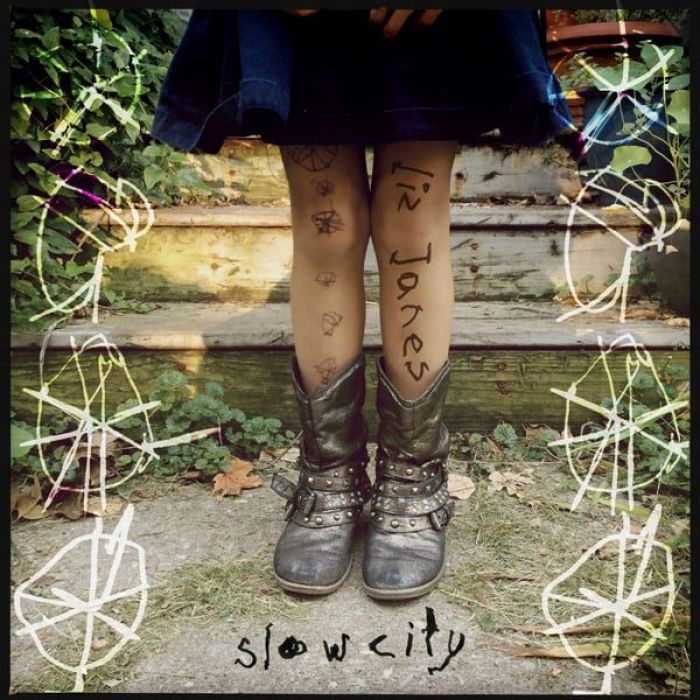Slow City by Liz Janes (Review)

Even with the numerous channels that we have at our fingertips for staying informed on whatever interests us — music, film, politics, news, celebrity gossip — it’s amazing how much can still be missed or overlooked. Case in point: I was completely ignorant of the news that earlier this year, acclaimed indie songstress Liz Janes had released her first album in nearly six years. Sometimes the Internet can really let you down, right?
Trimming some of the off-kilter flourishes — that skewed blend of folk, rock, blues, and jazz — that can be heard on earlier albums like 2004’s Poison & Snakes, Slow City is arguably the most direct and straightforward album in Janes’ discography to date. But that doesn’t mean it’s not a satisfying or rewarding listen, especially considering the sentiments of family and place that underscore the album’s nine songs.
“Circulation” kicks off Slow City with one of its strongest moments; shuffling drums, big guitar sounds, and Janes’ rich, layered vocals (which contain shades of both Mimi Parker’s soulfulness and Paula Frazer’s twang) immediately make a strong impression. One thing I enjoy about Slow City is how Janes adds dimension to her songs with the guitar. She’ll throw out some little jagged barbs and shards of noise that threaten to rend a song apart… and yet, everything keeps flowing together and sounding unified, and growing in emotional impact.
It’s a neat trick that you can hear on songs like “Circulation” and “Rosie,” adding some interesting sonic diversity to Slow City. Elsewhere, Janes’ guitar-playing recalls the raucousness and rattle of Manos-era Spinanes on “City” while “Rubberband” and “Foam” put truth to Janes’ description of Slow City as “holy dirt surf country.”
Lyrically and thematically, Janes has described Slow City as a celebration of settling down and finding one’s niche — “a celebration of life best felt in the moment.” She writes: “In a society where ‘busy is the new happy’ the ability to focus and be present is ever elusive, yet we as humans are certainly allowed to find joy in the simplistic bliss of date nights, family adventures and exploring a city that is woven into the fibers of your dress.”
And so “How Much Better” finds Janes celebrating the little delights of life, while Janes describes “Chincoteague” as “a love story for my family” that eventually ends with a heavenly vision of reunion. The album’s emotional center is “Elizabeth,” which chronicles the struggles of a single mother (“Elizabeth, you bicycle all over town with three little boys in tow”) who’s forced to sacrifice her own dreams in order to survive. On the song’s chous, Janes sings out “You cry yourself to sleep sometimes/Don’t we all cry some of the time?” in a striking moment of solidarity.
Slow City ends in humility with “Simple,” where Janes sings plainly “I am simple… I don’t understand, I can’t understand… Please forgive me.” Given the spiritual leanings on her previous albums, it seems safe to say that her apology and admission of limitedness are both directed at the same Object she’s always sung about. And while the lyrics seem threadbare on paper, there’s a pleading in Janes’ voice, especially on the bridge, that imbues “Simple” with emotional oomph.
One minor complaint: While I like the “holy dirt surf country” sound that Janes aims for, I do wish the album’s mix was cleaner at times. Slow City certainly wouldn’t work if it was burnished to a shine, but considering Janes’ strong voice, it is frustrating that her singing and lyrics are buried and at times, indecipherable. That approach might work if Janes was performing Cocteau Twins-esque dreampop, but that’s definitely not the case here. The feeling still gets across, certainly, but the exact message is muddled at times.